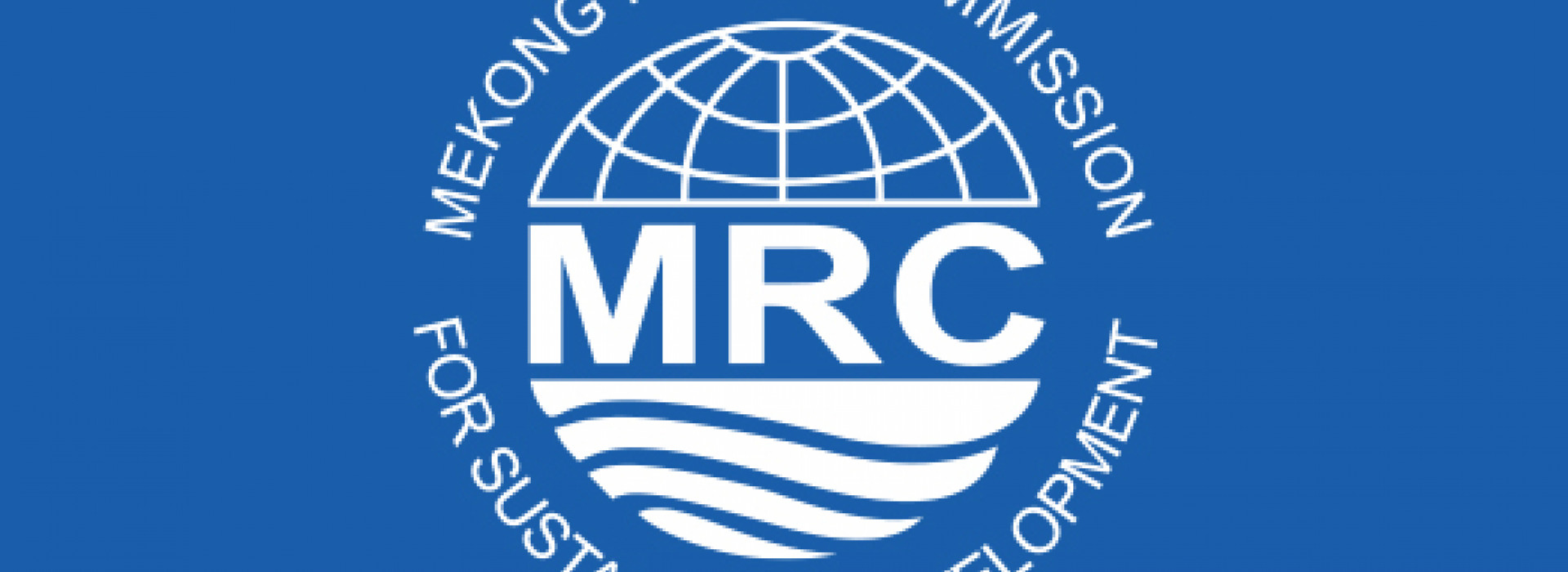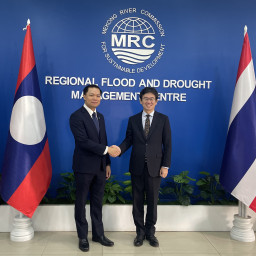Mekong River Commission prepares for 3rd Summit and work plan 2018
16 November 2017, Vientiane Capital, Lao PDR – Yesterday, the Mekong River Commission (MRC) officials met to prepare for the 3rd Summit of prime ministers on 5 April 2018 in Siem Reap to be hosted by the Kingdom of Cambodia. A series of activities and deliverables are planned leading up to the Summit and included in the Annual Work Plan for the organization for next year.
Based on achievements, challenges, and key lessons learned this year, representatives from member countries, with the support from development partners, and the MRC Secretariat prioritized the work for 2018 that includes the promotion and uptake of the recommendations from the Study on Sustainable Management and Development of the Mekong river basin (“Council Study”), the joint projects from the National Indicative Plans, the update of the sustainable hydropower strategy and design guidance for mainstream dams, the implementation of MRC Procedures, expanding cooperation with partners and stakeholders, strengthening basin monitoring and forecasting, knowledge management and gender mainstreaming.
Into the third year since endorsement of the IWRM – Basin Development Strategy 2016-2020 and MRC Strategic Plan 2016 – 2020; the MRC will seek to conduct an independent mid-term review on progress, achievements, and challenges faced in implementing the Plan and organizational reforms.
The 3rd MRC Summit, one of the most significant and highest political events taking place every four years, is themed around ‘joint efforts and partnership towards achievement of the Sustainable Development Goals in the Mekong’. A major two-day International Conference open to all partners and stakeholders will be staged on 2-3 April prior to the Summit.
Under the Basin Development Strategy, next year, start up of the joint projects will be prioritized including in navigation (between Lao PDR and Thailand), cross-border resource development and management (between Cambodia and Lao PDR), flood and drought management (between Cambodia and Thailand), and integrated flood management (between Cambodia and Vietnam).
Building on the outcomes of the Prior Consultation process for the Pak Beng Hydropower Project that was carried out in the first half of this year; the MRC will implement the Joint Action Plan in 2018, which includes a joint monitoring program.
Finally, partnership and cooperation underlie the MRC’s roles and functions. Next year, the MRC remains committed to continue building and strengthening new and existing partnerships, including with the Lancang-Mekong Cooperation Mechanism, ASEAN and the United Nations Economic and Social Commission for Asia and the Pacific (ESCAP).
The Mekong River Commission is the intergovernmental organization established to promote cooperation on the sustainable management of the Mekong basin whose members include Cambodia, Lao PDR, Thailand and Viet Nam. The MRC acts as a platform for water diplomacy and regional cooperation in which member countries share the benefits of common water resources despite different national interests, and address transboundary pressures in the basin. It also serves as a knowledge hub that promotes regional cooperation and policy-making based on scientific evidence. The MRC is not a supra-national or regulatory body. The commission looks across all sectors including sustaining fisheries, identifying opportunities for agriculture, maintaining the freedom of navigation, flood management and preserving important ecosystems. Superimposed on these are the future effects of more extreme floods, prolonged drought and sea level rise associated with climate change.
-END-





